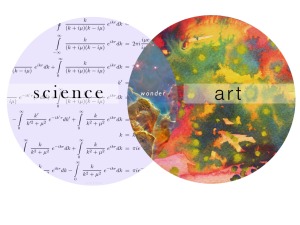Recently, one of of my friends sought my advice about her son’s college plans.  She and her husband had aspirations for him to apply to computer science programs and he had just announced that he wanted to apply to art schools. GASP!
She and her husband had aspirations for him to apply to computer science programs and he had just announced that he wanted to apply to art schools. GASP!
“What’s he going to do with an art degree? How will he make any money?”
As the resident nerd among my gaggle of friends, I wasn’t surprised to be asked about how to sway her son towards computer science. However, my friend didn’t realize how close this was to my own experience when it came time for me to apply to college many years ago.
I was born an artist. I would have finger painted my way from preschool through Kindergarten if I hadn’t been forced to learn my ABCs and 123s. I doodled on every notebook and book cover I made (you know, the ones you made with paper bags?) and while my friends were playing soccer or going to cheerleading practice, I was taking painting and pottery classes.
Despite my artistry being a defining characteristic throughout my young life, when it came time for college, my engineer Dad put a halt to my dreams of a career in art. He wanted me to be self-sufficient with a practical degree that gave me plenty of career options. Being a starving artist was out of the question. While I wasn’t happy about this, I wasn’t paying the bills for college, so I enrolled in the liberal arts program at UMASS Amherst.
Three years and four different declared majors later, once I had satisfied every general education requirement and took a few business classes, I applied and was accepted into my university’s studio art program.
I went on to graduate school to earn an MS in Management Information Systems, but my undergraduate degree in studio art impacted my career like no other major or on the job training could have done. I developed skills that were invaluable for my eventual career in technology. Here are just a few:
Learning by doing: Instead of rote memorization for exams, I was given complex assignments that were left totally up to my interpretation with extremely tight deadlines. Each assignment involved deep thought for a tangible outcome and there was no right answer; it was the quality of my execution and ability to convince the professor and my peers that I achieved a good result. This experience prepared me for projects where rapid prototyping and user experience were vital to success and led to my ability to delivery high quality software products on short timelines.
Presentation Skills: Standing up in front of your peers to “defend” your approach to an art assignment is not easy. It’s not a power point outlining the impact of the Vietnam War. It’s a very personal explanation of why your piece makes sense and why you feel you achieved the goal of the assignment. At 20 years old, presenting in front of a group to speak was terrifying for me, but after two years of art school, I learned how to be a confident speaker who could translate the complex ideas in my head into easy to understand concepts for almost any audience.
Creative Problem Solving: Each art assignment challenged me to create something unique. More importantly, it was a piece that not only I thought was beautiful and met the requirements, but something others would understand. I learned to take a novel idea, distill it into a “development” plan, and make something that others could appreciate. I attribute my ability to work with teams on highly complex and innovative technology products to this experience.
There is much research and many articles written about how art and science come together – this is what the STEAM (Science, Technology Engineering, ART and Math) movement is about. I am certain that, as an artist, my entry into the world of technology was no accident. I have worked with countless engineers throughout my career who are also artists and the common theme among them is the way they creatively solve problems and present their innovative ideas. I think the Dean of NYU’s Tisch School of the Arts, where my oldest daughter just enrolled as a film major, said it amazingly well this past weekend at Parents’ Day:
“Artists have the broadest set of skills. They have strengths in creative thinking, communication and leadership like no other student. They are willing to take risks and challenge convention and the world needs more artists for the next moonshot.”
So, what did I tell my friend? I told her to let her son apply to art school! If he’s got an interest in science and/or math, those will come later. For now, let him develop valuable skills that will pay off down the road no matter what path he chooses
Are you an artist in a technical role or have kids following similar paths? Please share your stories in the comments!